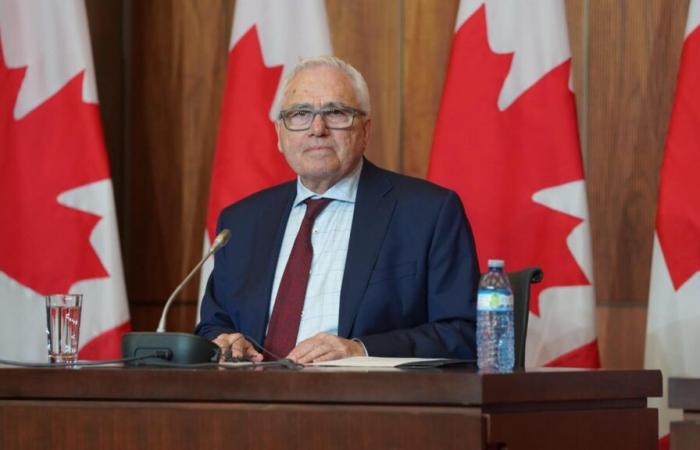OTTAWA – Official Languages Commissioner Raymond Théberge believes that the proliferation of various programs at Immigration Canada is harming the retention of French-speaking immigrants in the country.
The latter was commenting on a recent report from the Conference Board of Canada which concluded that Canada is losing 35% of its French-speaking immigrants in the long term, particularly in Ontario and Quebec.
While it is agreed that the retention of immigrants is multifactorial, including employment, housing and language, Raymond Théberge believes that Immigration, Refugees and Citizenship Canada (IRCC) “must do a better job when we talk about the Francophone lens at the level of their policies. “.
“When we talk about immigration, there is the entire continuum, from selection to establishment to integration into (Francophone) communities and I am not convinced that we have put in place all the means necessary to retain new arrivals,” he told senators on the Official Languages Committee Monday evening during an appearance.
Raymond Théberge, however, considers that the federal ministry is making its task more complicated by adding a French-speaking component to each of its immigration categories.
“There are so many things happening at once in the world of immigration: international students, targets, temporary workers, etc. We don’t know where to stand,” observes the Commissioner of Official Languages.
Currently, he maintains, “there are so many things happening at IRCC that it leads to a bit of ambiguity and uncertainty.”
“We are adding a French-speaking criterion to the program for international students, temporary workers, permanent residents, economic immigrants,” he lists. But in my opinion, it would be much more useful if we had a French-speaking channel, because they (French speakers) don’t even come from the same countries (as the English speakers). »
Raymond Théberge maintains that there is already “French-speaking expertise” that exists within the federal department and that such a way of doing things could improve the integration of French-speaking newcomers.
“It would allow us to put in place all the necessary structures to support these people,” he pleads.
This idea of having a single program dedicated entirely to French-speaking immigration is a suggestion from the Federation of Francophone and Acadian Communities of Canada (FCFA).
“These are measures that are taken by and for French speakers. It really takes a French-speaking lens to all the initiatives to get there,” argued its president Liane Roy in an interview with ONFR.
The federal government recently announced an increase in its French-speaking immigration target for the next three years. In recent months, the federal government announced a new pilot project for students in French-speaking establishments outside Quebec, in particular by exempting them from its foreign student cap.
Ottawa had also announced the addition of new welcoming French-speaking communities selected in the country to welcome new French-speaking arrivals. A few months earlier, the federal government had unveiled a new pilot project aimed at offering a path to permanent residence for French-speaking workers who settle in French-speaking communities outside Quebec.






